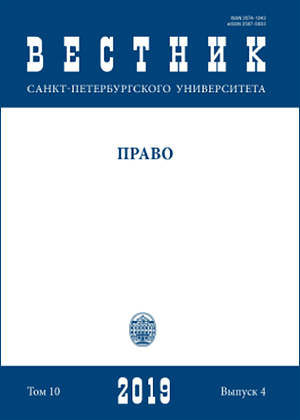Post-prison resocialization - myth or reality?
DOI:
https://doi.org/10.21638/spbu14.2019.414Аннотация
In this article, the authors draw attention to the consistently high growth of recidivism among those who returned from prison. The reasons for this are insufficiently effective re-socialization activities, while the authors point out that the activities of the Federal Penitentiary Service in prisons during the prison period are currently the most streamlined both in terms of regulatory legal support and in technical and legal terms. The main problems arise for convicts upon returning from prison, which is associated with the loss of social ties; difficulties in finding a job, while the state represented by authorized bodies and officials, in fact, distances itself from the process of post-prison resocialization. The authors in the process of the study point out the following issues that need to be resolved both at the legislative and administrative levels: the formation of common approaches in defining the concept of “resocialization”, “probation”, as well as in developing common requirements and standards in the field of post-prison resocialization. The authors conclude the need for an integrated approach to the re-socialization of convicts with the involvement of civil society institutions and refer to the historical past of the Russian Empire, in particular, patronage societies that are quite effective at that time. The authors have noted positive examples of concrete practical assistance to people who have returned from places of detention, in particular such organizations are the Center for the Promotion of Criminal Justice Reform.
Ключевые слова:
resocialization, convicts, Federal Penitentiary Service, state, civil society, societies patronage
Скачивания
Библиографические ссылки
for penal resocialisation”. Vestnik Vladimirskogo iuridicheskogo instituta 4 (29): 46–52. (In Russian)
Загрузки
Опубликован
Как цитировать
Выпуск
Раздел
Лицензия
Статьи журнала «Вестник Санкт-Петербургского университета. Право» находятся в открытом доступе и распространяются в соответствии с условиями Лицензионного Договора с Санкт-Петербургским государственным университетом, который бесплатно предоставляет авторам неограниченное распространение и самостоятельное архивирование.






